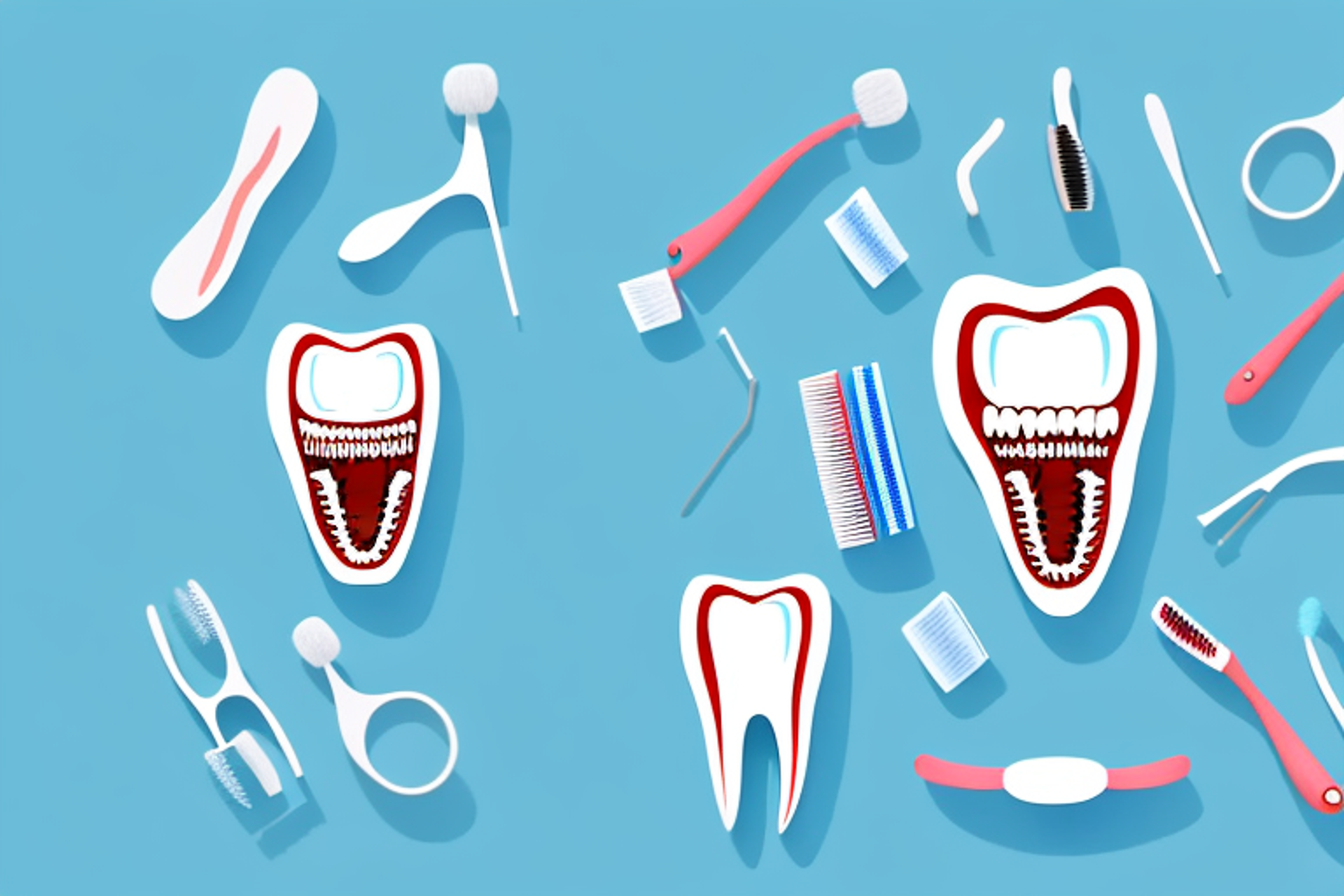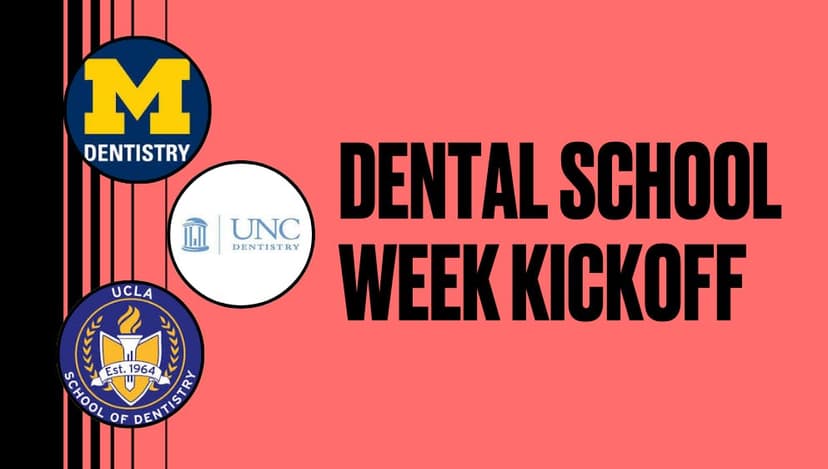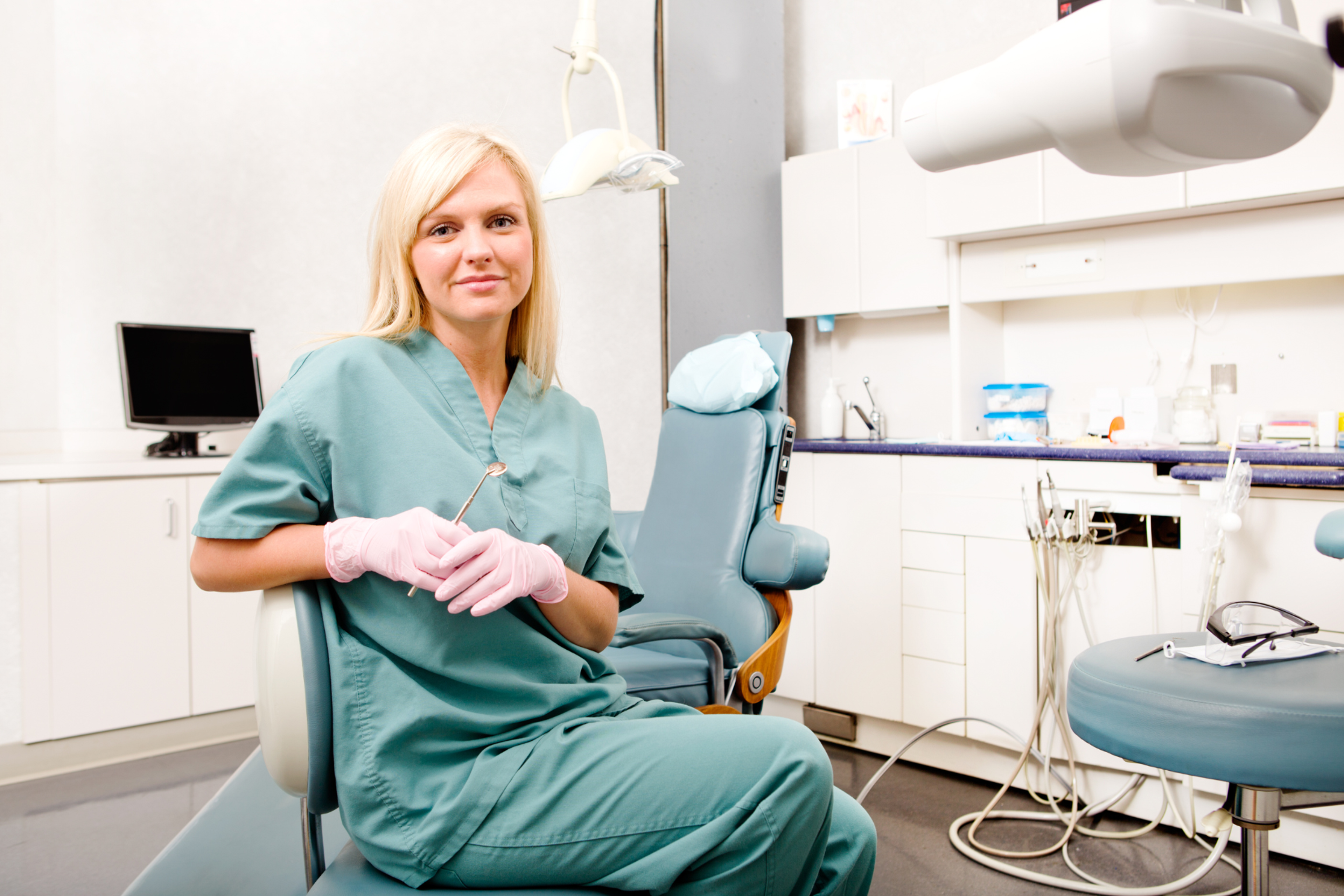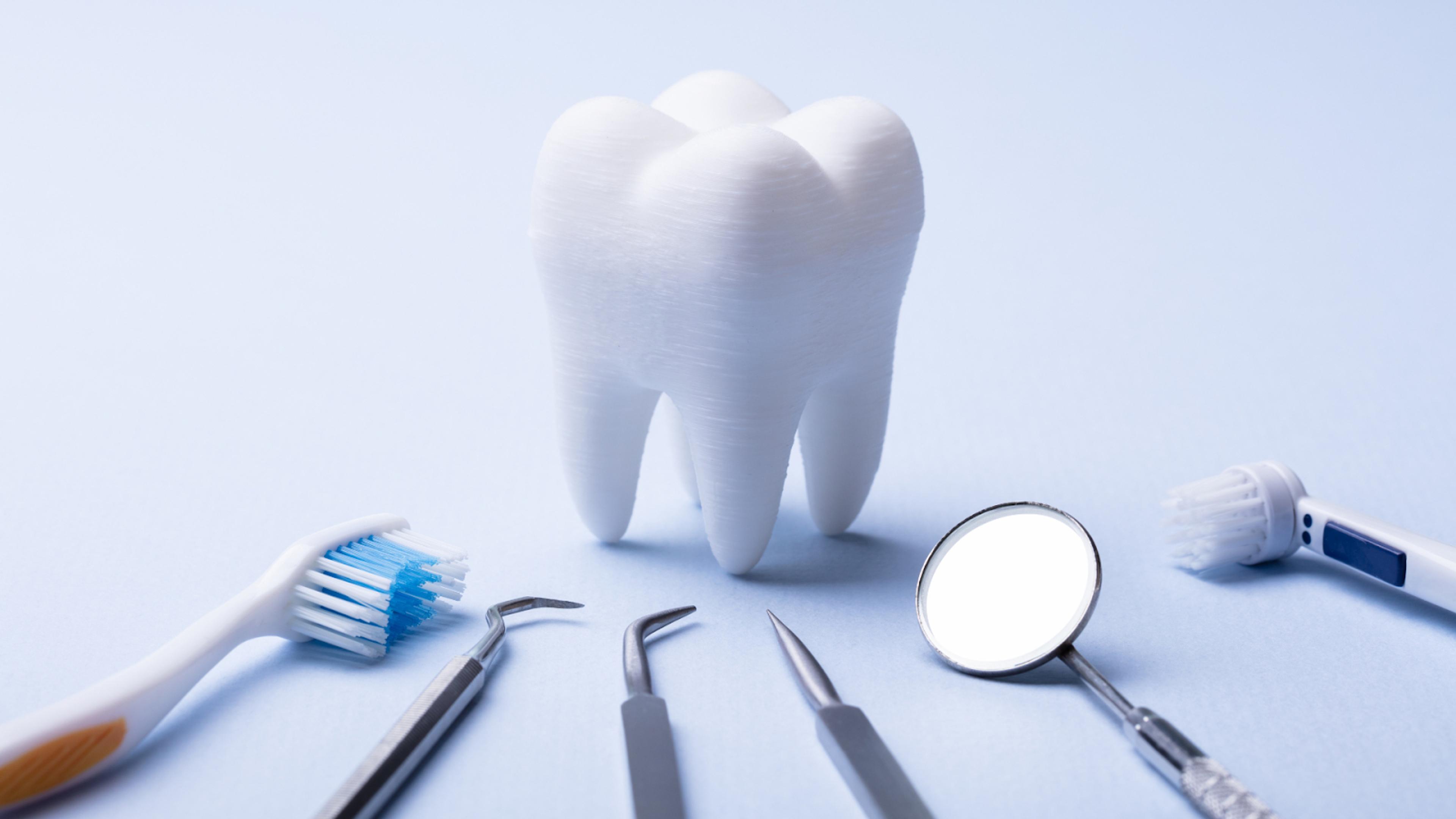The Top 10 Schools for Dental Hygiene
Discover the top 10 schools for dental hygiene and jumpstart your career in oral healthcare.
Posted June 13, 2025

Join a free event
Learn from top coaches and industry experts in live, interactive sessions you can join for free.
Table of Contents
Dental hygiene is a field where professionals help individuals maintain their oral health by providing preventative care and treatment services. The role of a dental hygienist is critical in ensuring individuals can keep their teeth for as long as possible, leading to a healthier life. Many schools offer dental hygiene programs, but finding the right one can be challenging. To help you get started, we have compiled a list of the top 10 schools for dental hygiene.
What is Dental Hygiene?
Dental hygiene is a career that focuses on the prevention, diagnosis, and treatment of oral diseases. It involves working closely with individuals to educate them on how to maintain their oral health and prevent diseases such as gingivitis and periodontitis.
One of the key responsibilities of a dental hygienist is to perform routine cleanings and check-ups on patients. During these appointments, they remove plaque and tartar buildup, polish teeth, and examine the mouth for any signs of disease or abnormalities.
In addition to clinical work, dental hygienists may also be involved in community outreach programs to promote oral health. They may visit schools or community centers to educate individuals on proper brushing and flossing techniques, as well as the importance of regular dental check-ups.
Why Choose a Career in Dental Hygiene?
Dental hygiene is a rewarding career choice that provides many benefits. It is a profession that allows for flexible work hours, competitive salaries, and growth opportunities. Dental hygienists work in a variety of settings such as dental clinics, hospitals, and schools, meaning there are plenty of job opportunities available.
Another benefit of a career in dental hygiene is the ability to make a positive impact on people's oral health. Dental hygienists play a crucial role in preventing and treating oral diseases, educating patients on proper oral hygiene practices, and promoting overall health and wellness.
In addition, dental hygiene is a constantly evolving field, with new technologies and techniques being developed all the time. This means that dental hygienists have the opportunity to continue learning and growing throughout their careers, keeping their work interesting and challenging.
How to Choose the Best School for Dental Hygiene
Choosing the best dental hygiene program can be challenging, especially when there are so many options available. When selecting a program, there are several factors to consider, including the school's location, accreditation, cost, and faculty. It's also important to consider the type of program, which can range from certificate programs to full-time bachelor's degree programs.
Another important factor to consider when choosing a dental hygiene program is the clinical experience offered. Look for programs that offer hands-on experience in a variety of settings, such as community clinics, hospitals, and private practices. This will give you a well-rounded education and prepare you for a variety of career paths.
Additionally, it's important to research the job placement rates for graduates of the program. Look for programs with high job placement rates and strong connections to the dental industry. This will increase your chances of finding a job after graduation and starting your career on the right foot.
Accreditation: Why it Matters for Dental Hygiene Schools
Accreditation is a critical factor when choosing a dental hygiene program. Accreditation ensures that a program meets specific educational standards that are set by national and regional accrediting bodies. It also establishes the program's eligibility for federal financial aid programs and makes it easier for students to transfer credits.
Furthermore, accreditation is important for graduates seeking employment in the dental hygiene field. Many employers require that applicants have graduated from an accredited program. Accreditation also ensures that graduates have received the necessary education and training to provide safe and effective dental care to patients.
What Are the Admission Requirements for Dental Hygiene Schools?
The admission requirements for dental hygiene schools vary but often include high school diploma or equivalent, transcripts, letters of recommendation, and a minimum GPA. Some schools may also require a personal interview or evidence of experience in the field.
In addition to the basic admission requirements, some dental hygiene schools may require applicants to complete prerequisite courses in biology, chemistry, and anatomy. These courses are designed to provide students with a strong foundation in the sciences and prepare them for the rigorous coursework of a dental hygiene program.
Another important factor that dental hygiene schools consider when evaluating applicants is their personal qualities and characteristics. Students who are compassionate, detail-oriented, and have strong communication skills are often preferred. Additionally, schools may look for applicants who have experience volunteering or working in a dental office, as this demonstrates a commitment to the field and a willingness to learn.
Exploring the Curriculum: What to Expect in a Dental Hygiene Program
A dental hygiene program often includes courses in anatomy, physiology, microbiology, and pharmacology. It also includes hands-on clinical training, where students work with patients to provide preventative dental care such as cleaning, scaling, and fluoride treatments.
Additionally, students in a dental hygiene program may also take courses in radiology, periodontology, and dental materials. These courses provide students with a deeper understanding of the tools and techniques used in dental hygiene, as well as the various diseases and conditions that can affect oral health.
Furthermore, many dental hygiene programs also emphasize the importance of patient education and communication skills. Students learn how to effectively communicate with patients about their oral health, provide guidance on proper oral hygiene practices, and address any concerns or questions that patients may have.
Clinical Experience: The Importance of Hands-On Practice in Dental Hygiene School
Clinical experience is a crucial part of any dental hygiene program. It provides students with the opportunity to practice and refine their skills under the supervision of experienced professionals. Clinical experience also allows students to work with patients in a real-world setting, developing essential skills such as communication, empathy, and problem-solving.
Moreover, clinical experience helps students to gain confidence in their abilities and to become comfortable working with patients. It also exposes them to a variety of dental conditions and treatment options, allowing them to develop a broad understanding of the field.
Additionally, clinical experience provides students with the opportunity to learn from their mistakes and to receive feedback from their instructors. This feedback is essential for students to identify areas where they need improvement and to develop strategies for addressing these areas.
Faculty and Staff: Who Will Be Teaching You in a Dental Hygiene Program?
The faculty and staff members in a dental hygiene program can have a significant impact on your education. It's important to research the qualifications and experience of the program's faculty members, as well as the ratio of faculty members to students. It's also helpful to look for programs that offer mentoring or tutoring services to support student success.
Additionally, it's important to consider the diversity of the faculty and staff in a dental hygiene program. Having a diverse group of educators can provide a more well-rounded education and perspective. Look for programs that prioritize diversity and inclusion in their hiring practices and actively work to create a welcoming and inclusive learning environment for all students.
Campus Life and Resources: What to Look for in a Dental Hygiene School
Campus life and resources are also essential factors to consider when selecting a dental hygiene program. Look for schools that offer a supportive learning environment, such as student organizations, extracurricular activities, and academic resources such as tutoring or writing centers.
Additionally, it is important to consider the location of the school and the surrounding community. Look for schools that are located in safe and accessible areas, with easy access to public transportation and amenities such as grocery stores and restaurants. Consider the local culture and community events, as these can provide opportunities for networking and professional development outside of the classroom.
Tuition Costs and Financial Aid Opportunities for Dental Hygiene Schools
The cost of dental hygiene programs can vary significantly, but most programs require a significant financial investment. However, there are many financial aid options available, including scholarships, grants, and loans. It's important to research the financial aid options available at each school and apply for them as early as possible.
Beyond Graduation: Job Prospects and Career Paths for Dental Hygienists
Dental hygiene graduates have many career opportunities available to them, including working in private practices, hospitals, clinics, and schools. The job outlook for dental hygienists is positive, with the Bureau of Labor Statistics projecting a 6% job growth rate over the next ten years.
Alumni Success Stories: How Graduates from These Top 10 Schools Are Succeeding in the Field
Graduates from these top 10 dental hygiene schools have gone on to have successful careers in the field. Many have landed positions at some of the top dental clinics and hospitals in the country, while others have started their practices or worked in education and research. Each of these schools provides a solid foundation for a successful dental hygiene career.
Choosing the right dental hygiene program is critical to your success in the field. With this list of the top 10 dental hygiene schools and a guide to the critical factors to consider when selecting a program, you have the tools to make an informed decision and start your journey to become a dental hygienist.
Browse hundreds of expert coaches
Leland coaches have helped thousands of people achieve their goals. A dedicated mentor can make all the difference.

















